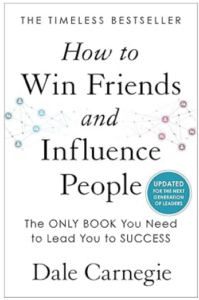
Each one of us is trying to do our best to deal with the chaos of life. So much goes on in our inner worlds – from thoughts, and fears, to stories, and biases.
So of course whatever happens in your inner world can impact your relationships with other people.
Pay Attention to Your Own Thoughts.
We have thousands of thoughts running through our minds every day. Being present with yourself enables you to sift through them.
When you pay attention to what is going on inside of you, you can come up with a more balanced view of your experiences.
Pause to gauge whether a particular thought is appropriate to bring up.
This practice is key to improving communication in relationships.
Work on Self-Reflection.
Self-reflection allows us to clearly convey a message and also makes it easier for the other person to understand the real meaning of what’s being communicated.
Clear and honest communication is crucial in any relationship. We don’t have the ability to read minds. In order to build trust and a deeper connection with someone, it’s important to let them know what’s going on in your mind.
Disagreements Aren’t the End.
Disagreements are part of every relationship. Sometimes we have to deliver difficult messages to our loved ones.
Don’t forget – we all handle difficult situations differently.
Many people tend to bottle up their feelings to avoid conflict, and, some say incredibly hurtful things in the heat of the moment.
Work on Your Empathy.
Empathy is important.
Empathy allows you to hold space for others. Giving them the space to be vulnerable can help you connect with them on a deeper level.
Although you may not know exactly how your words will be received, you can still choose to be kind.
Sympathy vs Empathy: What’s the Difference?
Invite the other person to work together to navigate misunderstandings or conflict.
There is a fine line between being honest and being rude, so practice taking a moment to calm down before you frame your response.
Convey your message assertively and kindly.
Blaming or pointing fingers causes the other person to become defensive and as a result, the conversation is less likely to reach a fruitful conclusion.
Carefully listen to the other person’s concerns to come up with empathetic responses. Consider the other person’s feelings and try to put yourself in their shoes.
Words Carry a Lot of Power.
Taking the time to choose the right words can mean the difference between a positive and negative outcome.
Express your boundaries clearly and respectfully.
Remember, it’s not just about what we say, but how we say it.
Be mindful of your tone. The way you deliver your message matters a lot.
You Can’t Control How Someone Else Responds
Release your expectations of how the other person should respond. You don’t have to agree with the other person, simply try to understand them.
When you practice mindfulness, you are more likely to have the presence of mind to hold space for others. As a result, instead of over-identifying with your own thoughts and feelings, or that of others, you can embrace the moment with openness and less judgment.
Work on framing your responses in a way that fosters mutual understanding and respect.
It’s important to create space for a healthy conversation where everyone feels heard, and valued.
Helpful resources
If you want to explore how to improve your communication skills, here are some book recommendations:
How to Win Friends and Influence People by Dale Carnegie
You’ve heard of this one – it was originally written in 1936 and is still around nearly 100 years later because the advice author Dale Carnegie gives is absolutely timeless.
How to Win Friends and Influence People teaches you about effective communication, how to make people like you and how to successfully navigate almost any social situation, among so many other things.
by Leil Lowndes
Do you ever wonder about those people who seem to have a magic quality that makes them instantly loved and respected? What it boils down to is a more skillful way of dealing with people.
In her book, author Leil Lowndes will teach you how to make an incredible first impression, how to master the art of small talk, how to walk and talk like a VIP and how to establish rapport with anyone.
Disclosure: As an Amazon Associate, we earn a commission when you click the link and finalize a purchase (At zero cost to you.). We participate in programs like these to keep providing our readers free daily motivational content.
February Monthly Motivational Message 2024 Throwback: Beat Your Inner Critic
Sometimes your inner critic goes on like a broken record.
“You’re a loser…you’re a loser…you’re a loser” times 100.
Life isn’t perfect. Things go wrong, and you often find yourself in circumstances beyond your control.
But this negative inner voice tells you it’s all your fault. We all make mistakes sometimes but a lot of things happen randomly. That’s just how life is. And yet we beat ourselves up over everything.
A negative inner voice is something that everyone struggles with.
Stop believing your inner critic.
At any point, you have a few things going in your favor. You have some challenges too. If you believe your inner critic, it will be tough to keep a balanced perspective.
Your inner critic is a wounded part of you that’s hurt and disappointed. All the things it says are a projection of your past experiences, social conditioning, and the environment in which you were raised.
To protect you from more pain and rejection, your inner critic hurls abuses toward you – a really messed up way of providing protection, but that’s all it knows.
Accept it for what it is.
Silencing Your Inner Critic: 5 Strategies for Cultivating a Kinder Inner Dialogue→
Your inner critic will tell you what might happen if you take a particular action. It will tell you what other people might think about you. It will tell you that you deserve the shame and guilt. Or it might tell you – in detail – the catastrophes that await you.
How can your inner critic know all of that?
Your inner critic cannot predict what’s going to happen next.
No two moments are alike. Just because something bad has happened in the past, doesn’t mean your efforts will go to waste this time too. Things have changed. You are a different person.
Making positive changes in life requires a lot of courage, patience, and persistence.
You can’t do all of that if you spend every waking moment beating yourself up. You have to make those changes from a place of love.
Each time you face a setback or make a mistake, you have to give yourself grace and compassion. Give love to yourself.
Spend quiet time with yourself.
Spend a few minutes in silence and solitude every day. Breathing exercises can help you to create more distance between you and your thoughts.
Learn to forgive yourself for your past mistakes. You can’t change the past, but the present is giving you the opportunity to make better choices. Take this opportunity.
Talking back to your inner critic can get really exhausting, especially when it’s being stubborn. Guided meditation is a great tool to silence negative mental chatter. Having someone tell you exactly what you need to do can help you take a break from trying to manage the negative chatter all by yourself.
Practice gratitude.
Also, practice gratitude. The more you practice gratitude, the easier it will be to break the vicious cycle of unhelpful thoughts.
Your inner critic thrives on your attention. If you engage with it, it will keep you stuck in the trap of self-loathing.
When you stop giving power to the negative thoughts, they will drift away on their own.
Stop identifying with your inner critic.
Practice nonjudgment. You have to make a conscious effort to avoid internalizing the terrible things that your inner critic says.
Counter the negative words with affirmations.
- “I’ll never get over this” – “Every situation is temporary. There is a way out. I can heal.”
- “Nobody will ever truly love and understand me” – “True love starts with me.”
- “I’m so far behind” “I’m irredeemable” – “I am doing my best. I’m not perfect but I’m learning and growing each day.”
- “I’ll never have another relationship” – “I release my past and am ready to find love.”
Be kinder and more compassionate with yourself.
Allow yourself to experience life with a fresh perspective instead of the lens of your traumatic past.
Throwback – February Monthly Motivational Message 2023 – Focus on Self-Love
Ah, February, the month of love.
Love has so many different elements. To love is to trust, have courage, be compassionate, and be vulnerable as well.
There’s no doubt that love plays a significant role in our overall well-being. It feels amazing to be loved by someone else. However, those warm loving feelings can be difficult to sustain if you don’t love yourself in a relationship.
The only person we have full control over in a relationship is ourselves.
Focus on Self-Love This Month
No matter your relationship status, self-love is extremely important to maintain balance and harmony in your life and relationships.
This month, focus on creating a loving relationship with yourself.
When we hear the word relationship, we think of two people coming together.
We often take our relationship with ourselves for granted. It might even seem weird to acknowledge this relationship you have with yourself.
But this is the most important relationship of your life. Embrace the value of your relationship with yourself. Like any other relationship, this one also needs love, trust, and respect.
Focus on getting enough rest, and recharging your mind and body. Think about what you can do each day to make yourself feel more loved.
You can devote more time to self-care practices, take yourself on a date, speak more kindly to yourself, and write down your accomplishments.
Need help getting started? Read this next: What is Self-Love and How to Practice it
Become more intentional about loving yourself.
Focus on the good in yourself and embrace your courage to say no to people who drain you.
Without self-love, we end up sabotaging new opportunities that come our way. We don’t allow ourselves to accept compliments and we minimize our successes.
Self-love allows you to optimize all your relationships. Romantic gestures from your partner won’t make any difference if you don’t believe in your heart that you are deserving of them.
When you love yourself, it will be easier for your partner to love you as well.
Taking time for doing something that makes you feel good is not being selfish. It’s necessary for a happier, healthier, and more fulfilling life.
If you want to get started with a new self-love practice, check out one of these helpful articles:
Do You Come First? The Importance of Self-Love
Photo by Edmond Dantès










